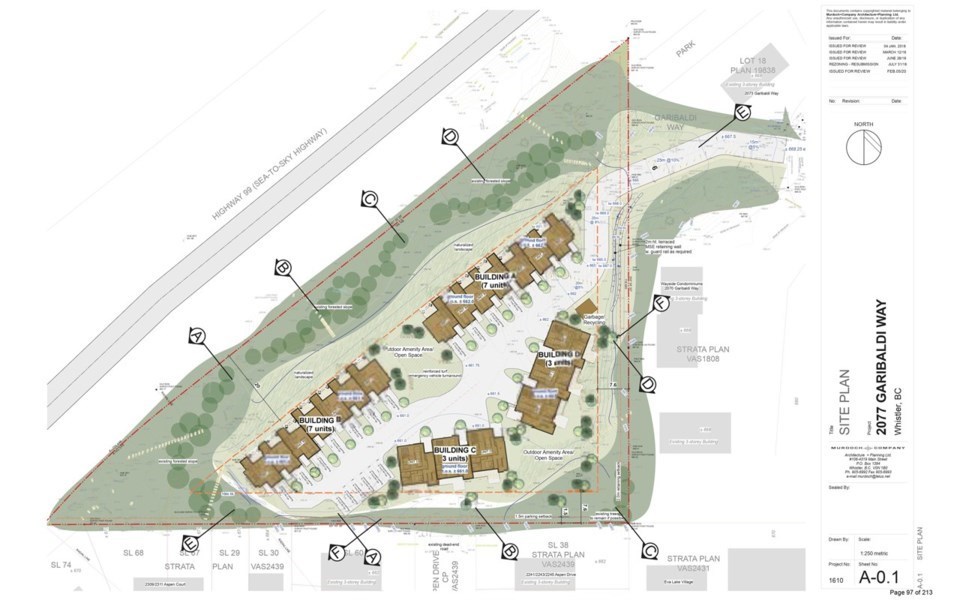Local officials got their first look at a “robust” housing agreement for a Whistler Housing Authority (WHA) development proposed for Nordic Estates.
At the Tuesday, April 26 council meeting, officials gave first three readings to the housing agreement bylaw for 2077 Garibaldi Way, a proposed 20-unit townhome development that, if approved, will include 14 employee-restricted units and six market units.
The agreement establishes occupancy and purchase eligibility, sale and resale price restrictions, as well as rental restrictions, and sets out penalties for misuse. While the employee and market units can be built concurrently, the agreement also mandates that occupancy permits must be obtained for the employee units before the market units can be filled.
The maximum initial sales price for the employee units is set at $559 per square foot, while the maximum rental rate is $2.75 per sq. ft., and a maximum monthly rental rate per room of $1,000.
For owners wishing to sell their unit, it must first be made available to qualified candidates on the WHA waitlist, according to priority. If, after a period of 60 days, the unit still has not sold, then the owner can sell it to anyone who meets the definition of a qualified employee under the WHA’s criteria.
A penalty of $700 per day will apply to a unit that is used or occupied in breach of the agreement.
Councillor Cathy Jewett called it a “more robust” housing agreement than has been in place previously and designed to promote employee occupancy in perpetuity.
“Now the other thing about these housing agreements is that they are not promoting people renting them out,” she added. “In fact, they can’t be absent for more than six months, unless they apply for hardship. So people can’t buy these things and then take off and go traveling for a couple years and rent them out.”





